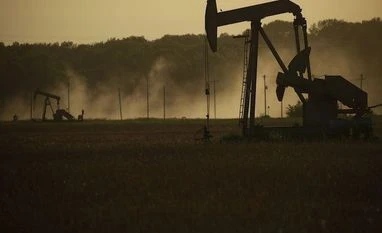Sri Lanka needs to pay USD 587 million to several foreign oil companies for planned fuel imports until mid-August, said Sri Lankan Minister of Power and Energy Kanchana Wijesekera on Sunday.
"Sri Lanka has to make the payments of USD 587 million to several foreign oil companies from Monday for different shipments of fuel," Wijesekera said.
As of now, the state-owned fuel importer and distributor Ceylon Petroleum Corporation is left with 12,774 metric tons of diesel, 1,414 metric tons of 92 octane petrol, 2,647 metric tons of 95 octane petrol, 233 metric tons of super diesel, 500 metric tons of jet fuel and 29,000 metric tons of furnace oil in its stock, Xinhua reported.
Notably, three ships containing petrol and diesel are expected to reach the country this month and another in August the Chairman of Lanka IOC, the subsidiary of Indian Oil Corporation, said on Saturday as it will give relief to the people facing fuel shortages.
One ship is expected to arrive between July 13 and 15 and another ship is scheduled to reach between July 29 and 31. And the last one will reach the island nation between August 10 and 15, Daily Mirror Online reported.
Shipments are due on 6th, 10th, 16th, 19th, 21st, and 31st July, it added.
More From This Section
Earlier on Wednesday, Sri Lanka's Chief of Staff of the Prime Minister Sagala Ratnayake stated that the Ceylon Petroleum Corporation (CPC) has confirmed a Petrol shipment that is likely to arrive in the country on July 22.
Sagala Ratnayake also mentioned that several discussions and attempts to secure a fuel shipment before the expected date are being carried out, the News Wire reported.
The PM's chief of staff added that a shipment of Diesel of 38,000 MT is also expected to arrive in the country between the 11 and 15 of July.
Ratnayake further claimed that while one Petrol shipment from India is expected to arrive by July 22 and the CPC has been carrying out efforts to secure a Petrol shipment by July 10.
Notably, Sri Lanka has been facing the worst economic crisis since independence in 1948, leading to an acute shortage of essential items like food, medicine, cooking gas and fuel across the island nation.The nearly-bankrupt country, with an acute foreign currency crisis that resulted in foreign debt default, had announced in April that it is suspending nearly USD 7 billion foreign debt repayment due for this year out of about USD 25 billion due through 2026. Sri Lanka's total foreign debt.The economic crisis has particularly impacted food security, agriculture, livelihoods, and access to health services. Food production in the last harvest season was 40 - 50 per cent lower than last year, and the current agricultural season is at risk, with seeds, fertilizers, fuel and credit shortages.Sri Lanka is one of the few nations named by the Food and Agriculture Organization (FAO) which is expected to go without food due to the global food shortage expected this year.
)